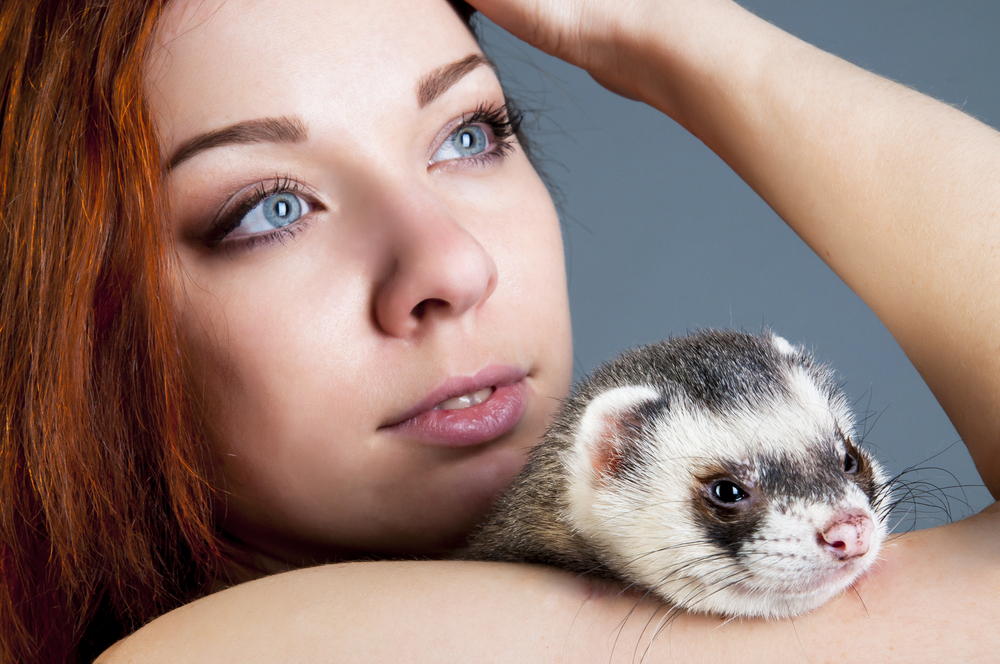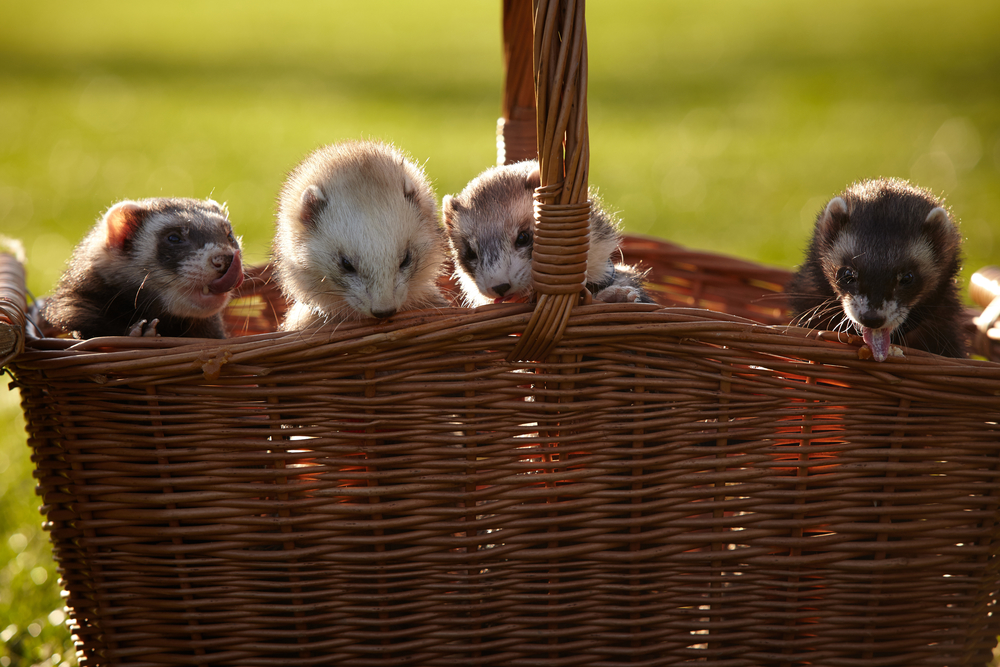Many experienced ferret owners adhere to what is known as BARF — the bones and raw food diet. Proponents believe that because ferrets are natural carnivores, they should be fed only uncooked meats and bones, as these come closest to the ferret’s traditional, ancestral diet of rabbit, small rodents and game birds hunted in the wild. A balanced, all-natural raw diet is also much gentler on a ferret’s digestive system and kidneys, thereby helping prevent adrenal disease.
A typical bones and raw food diet consists of fresh meat like poultry, lamb, beef or rabbit, minced or cut into small chunks. Livers, hearts, skin, fat and bones can also be provided. Avoid feeding small bones or ones that have been allowed to dry, as these can splinter and become lodged in the ferret’s throat. Chewing on large bones or those that have been softened by boiling will provide the ferret with extra calcium and help clean its teeth. Ferrets are lactose intolerant, so cow’s milk should never be given. A better choice is goat’s milk or lactose free milk. Milk is especially important for newly weaned ferret kits, and for pregnant or post-partum mature females. Eggs can be fed to a ferret as an occasional treat, and may be left raw or cooked. Most ferrets do enjoy some fruits and vegetables, but these should only be offered in strict moderation, as a ferret’s digestive system cannot process plant proteins very well. Fruits and vegetables should be soft and mashed – ripe melon, bananas, raisins, grapes and lettuce are all good options. Never feed a ferret any hard, uncooked fruit or vegetables. Even a tiny undigested piece can cause intestinal blockage, which could be life threatening. Nuts, chocolate and sugary or salty foods should never be given to ferrets. Nuts get stuck in the ferret’s teeth and cause tooth decay; the other foods may interfere with the ferret’s major organ functions and could cause death.









